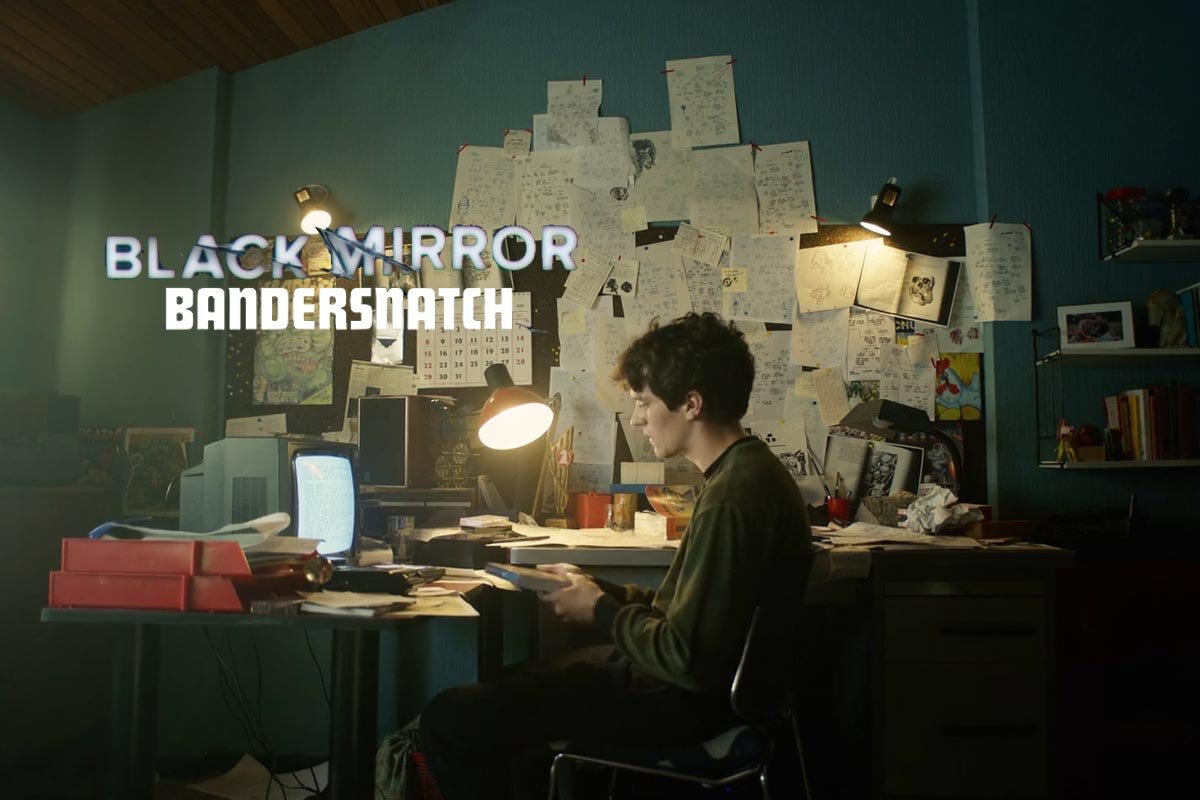“People think it’s a happy game, it’s not a happy game, it’s a fucking nightmare world and the worst thing is it’s real and we live in it.”
Black Mirror episode Bandersnatch pushes the viewers into the illusion of decision-making and destroys our belief that things would be better if we had made different choices. Bandersnatch is about a boy called Stephan who obsesses over making his best video game on a somewhat tight deadline and ends up making a combination of bad choices, despite the many chances he gets. The line between reality and a video game gets blurrier as we delve deeper into this 90-minute Black Mirror episode Bandersnatch.
Written by Charlie Booker and directed by David Slade, Bandersnatch not only leaves us with an open ending but also an open narrative. While we make choices from given options, we are unaware that whatever we choose will lead to an unpleasant ending. Bandersnatch has created a buzz in two main areas—first, the freedom to make decisions, and second, the unique narrative style. In this article, we will analyze the roots of our decisions from the perspective of Bandersnatch and understand the narrative style.
“The whole thing’s a metaphor. He thinks he’s got free will, but really he’s trapped in a maze, in a system.”
The Maze
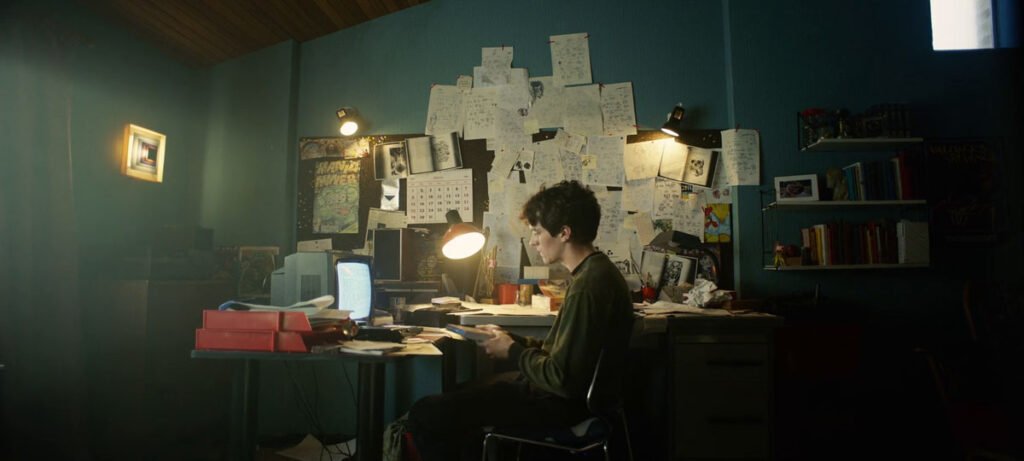
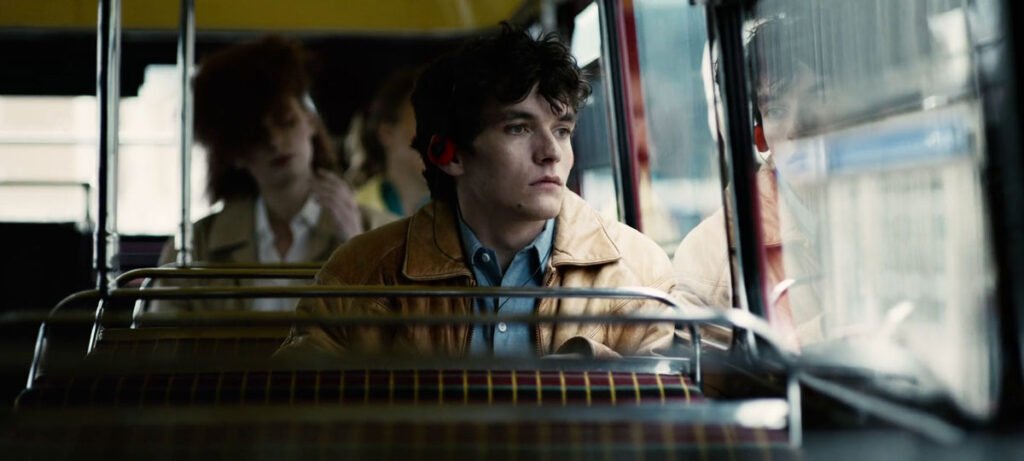
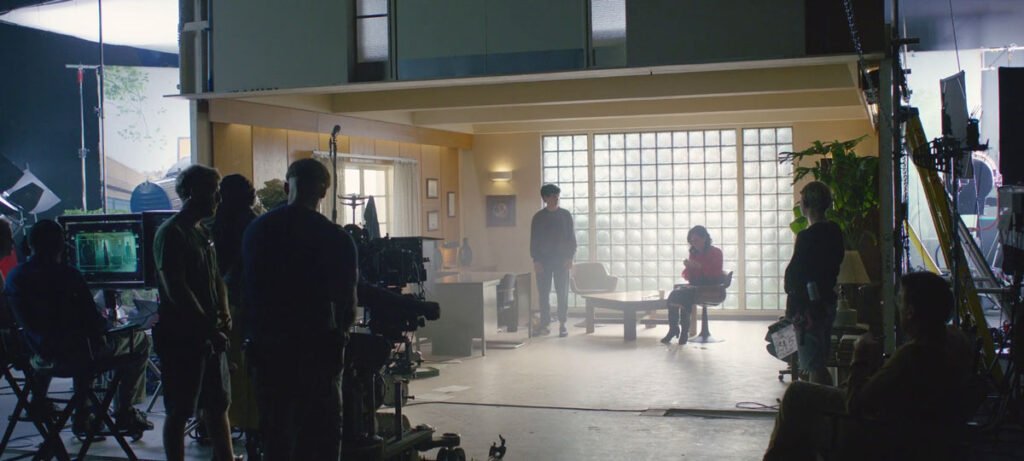
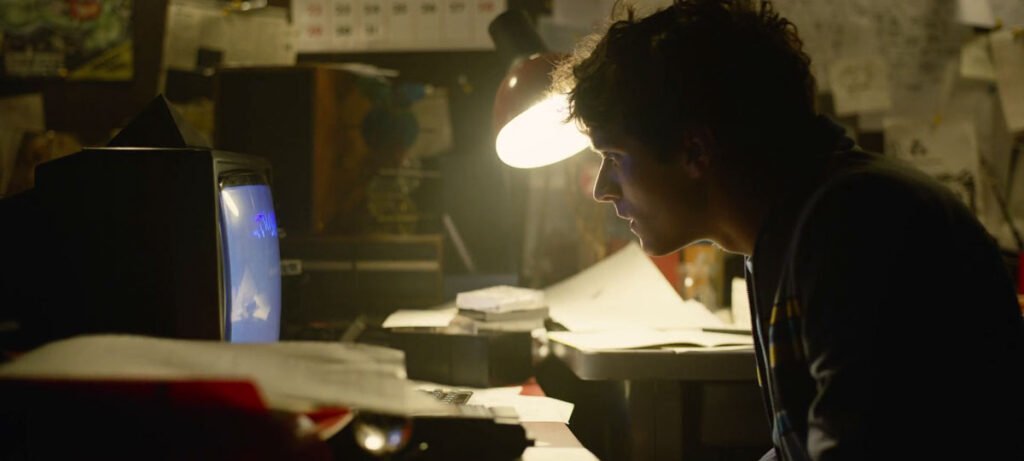
Bandersnatch jolt starts with a buzzing alarm and an unkempt Stephan preparing for a day. Set against the backdrop of Britain in 1984, Stephan Butler picks a project of making a video on the choose-your-own-adventure book called Bandersnatch, which was also going to be the name of the game. After pitching and getting accepted by a video game company Tuckersoft, Stephan employs Colin Ritman, another famous game creator. At this point, Stephan needs to choose between taking help from Colin or rejecting it and he accepts it, which turns out to be a wrong choice. Stephan gets another chance to retry and the story begins from the beginning.
In his next life, Stephan rejects the help from the company and starts working on it all by himself, which again turns out to be a wrong choice since, as he proceeds, the game becomes way more complicated and shatters his mental state. His father Peter suggests he should see a therapist called Dr. Haynes. Through his sessions, we come to know deeper and darker secrets from his childhood. We also uncover the root causes of his tormentation, which also includes the fact that he blames himself for his mother’s death.
As the episode rolls on, we see the multiple retakes of Stephan’s life where he attempts to make things right but unfortunately, something or the other keeps going wrong. We also see other characters in different lights, the father as a victim of Stephan’s mental breakdown and the same man as a villain or a mere actor or Dr. Haynes as a very compassionate woman trying to help Stephan but then also as a villain when she pulls out swords to attack him. The story also gives some insights, but also leaves the viewers to decide, on whether our choices mean anything or whether are we actually being controlled by some force.
At every step where he is to make a decision, like whether to work with Colin or not, to take the pills given by Dr Haynes or not, or to take drugs or not, Stephan is to choose between two options. These two options are given on the screen and as viewers, we attempt, can control Stephan’s life. Every decision he makes turns out to be a wrong choice at some point and he keeps going back to the beginning of the day. His life tragically ends, again due to a choice he made.
Accept or Reject
“Your fate has been dictated, it’s out of your hands.”


As viewers of Bandersnatch, we are initially quick to choose on behalf of Stephan and are nearly certain of the fact that our choices are the best for him. However, as we move ahead in the intricate plot and reach the middle of the loop of the narrative, we realize that our choices, despite being the best, are not constant. It alters depending on the outcomes in the previous life. This happens because of the philosophy of decision making which goes through three stages, explaining the three broad concepts of decision making.
Initially, we choose between ‘Accept’ or ‘Reject’ based on ethics, i.e., we separate right from wrong and decide to go with the right one, like choosing the healthier breakfast, or deciding that it will be best to work with Colin or to take take the pills and so on. Later on, our ‘Accept’ and ‘Reject’ alter depending upon our knowledge of the forthcoming situations. Ultimately, we become very critical and take into account the circumstances, the other characters’ dual nature, and the previous result of our decision. These three stages explain the three concepts of decision making – Ethics, Epistemology and Praxeology.
Hence, what is crucial to keep in check while watching Bandersnatch is not what we are ultimately deciding for Stephan to do, but to understand the nature and origin of our choices. As humans, we, who cannot alter our pasts or have a second chance, think that it would have been better if we had acted differently in a given situation. But Bandersnatch tells us that there is no promise that the other option would have been a better choice.
“The past is immutable, Stefan. No matter how painful it is, we can’t change things. We can’t choose differently with hindsight. We all have to learn to accept that.”
Choose your own adventure
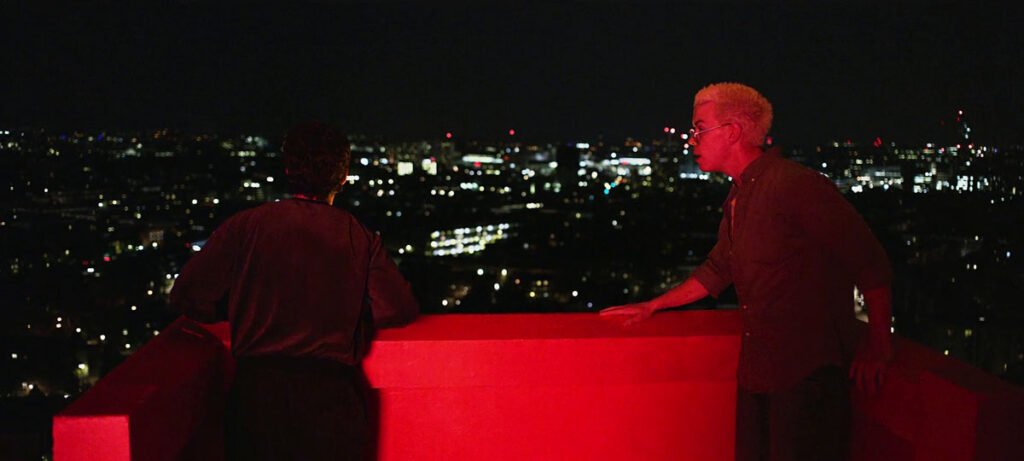
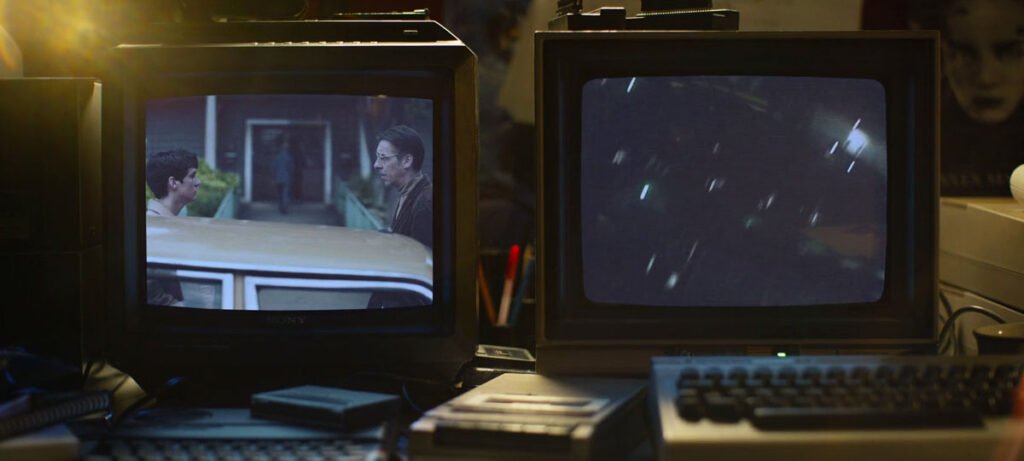
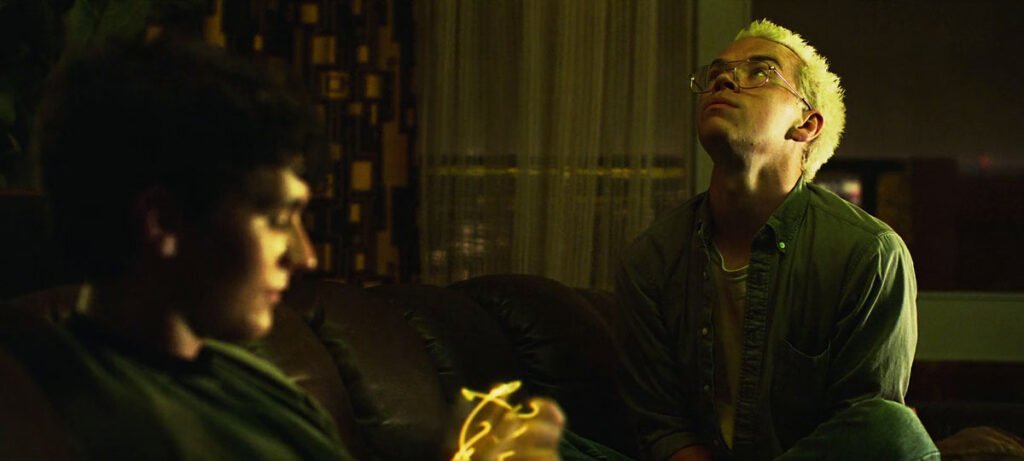
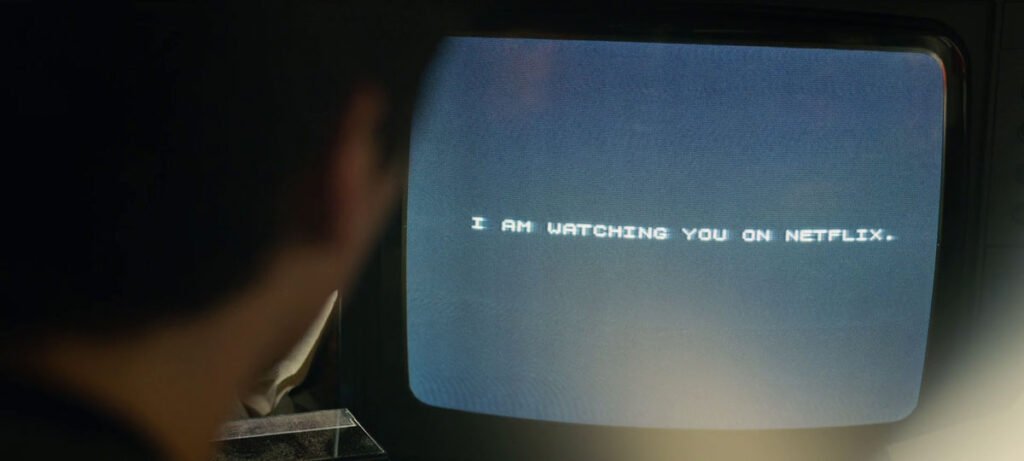
The next most talked-about fact of Bandersnatch is the narrative of the episode. The multiple choices build up multiple narratives. Every narrative puts characters in different lights. It is an interactive narrative that allows you to choose but also makes you think about whether you are free to make choices, whether you are controlled by the government or by Netflix itself. It creates the illusion that as viewers, it is us that is telling Stephan what to do. This narrative style activates our minds into thinking if, in our real lives, we are truly making our own choices or if are we following to consume what the rest of the world does.
Bandersnatch is a branching narrative that builds different plots on every next life. While the end of a plot is crucial to give the story a meaning, in Bandersnatch the end is circumstantial. Just like Stephan feels that the game is not done right and he can make it better if the deadline can be extended, we also feel that we can choose a better adventure and can make better choices in the next branch of the plot.
Finally, the Choose Your Adventure style bridges the narrative and the character. It gives us a video game-like scenario. Every next life is fast-forwarded until the point of decision and the following events alter accordingly. The plot has a villain, and friend, many obstacles and layers to it. It makes us wonder if Stephan is really created, if everything happening with him is scripted and if he is really choosing his own adventure.
Bandersnatch also hints at the idea of a multiverse. Colin introduces and elaborates the idea to Stephan and says that whatever we choose in one existence, there’s another universe where we are doing just the opposite. Later, we see that in one universe Stephan is still alive and chatting with his therapist and in the other he dies in his childhood, giving an ultimate and tragic end to the series of complex narratives of this video game-like episode. So, are we choosing our adventures or do we happen to be in one of the already chosen adventures? It does not tell us which set of choices would have been the right one, or if there even is a right set of choices at all.
“I’d been trying to give the player too much choice. So I just went back and stripped loads out. And now they’ve only got the illusion of free will, but really, I decide the ending.”
Conclusion
“We exist within multiple parallel realities at once.”
Black Mirror has taken the concept of a dystopian future to new heights with its episodes and adds another layer of tech dystopia with Bandersnatch. While it shows both the slides of technology – progress and tormentation – it puts humans only as the antagonist. Nonetheless, through the Bandersnatch episode also Black Mirror does not fail at knocking our subconscious minds.
Bandersnatch also shows the dicey and unpredictable nature of humans, subtly. It brings the illusion of life to light, forcing us to finally accept the fact that we are not the ‘know-it-alls’. Also successfully portrays the human nature of wanting to win or wanting to create the best. It also hints at the fact that the media is controlling us, making us aggressive day by day. It also tells us that regretting making a different choice at some point in our past does not guarantee a better life.
Black Mirror episode Bandersnatch reminds me of Robert Frost’s Road Not Taken and makes me wonder if choosing the worn-out path had anything better to offer. It leaves us with a question if it had given more chances, would Stephan’s life get any better?
“There’s a cosmic flowchart that dictates where you can and where you can’t go. I’ve given you the knowledge. I’ve set you free.”

